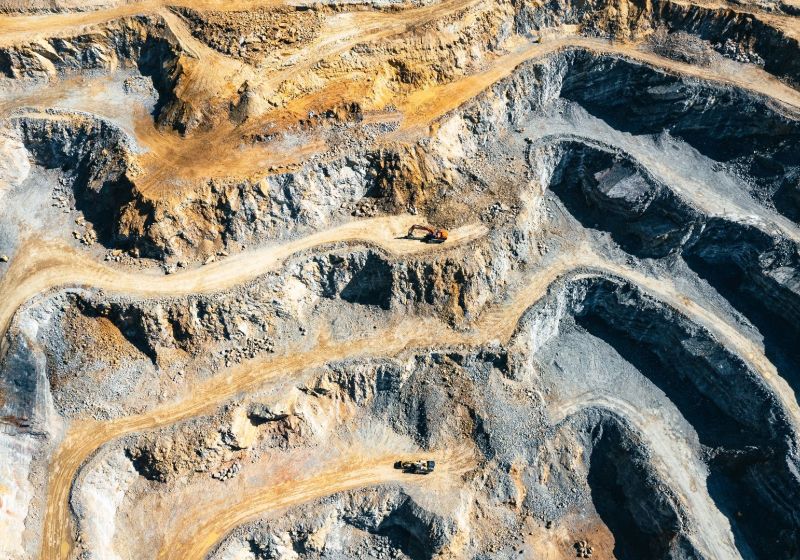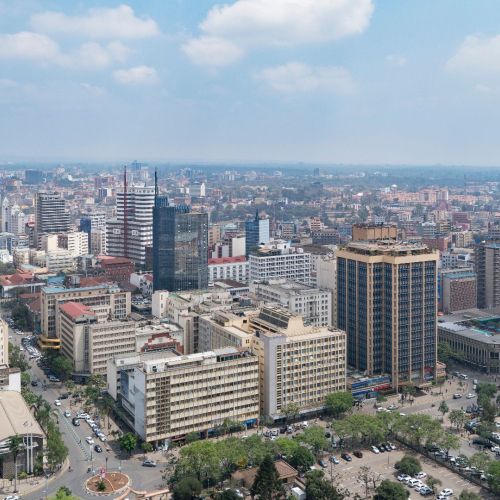Global demand for critical metals surges

As the world shifts towards a more sustainable future, the demand for critical metals has surged, with Africa emerging as a strategic location for mining these resources. The continent boasts a wide range of natural resources and reserves, making it an important player in the global supply chain of critical metals.
Western economies have historically focused on their own domestic production of critical metals, such as the United States' production of lithium and Australia's production of rare earth metals. However, the demand for these metals has surged in recent years, and these countries' domestic production is no longer enough to meet global demand. As a result, the West is now playing catch-up, trying to secure critical metal supplies.
One factor that has hindered exploration for critical metals in Africa is the complex regulatory environment. African countries have a history of political instability, which can create uncertainty for mining companies looking to invest in the region. In addition, African countries often have different regulations and standards than those in the West, which can make it challenging for western companies to navigate the legal landscape.
The high cost of exploration and mining operations on the continent has also deterred some companies from investing in the region. African countries often lack the necessary infrastructure, such as roads and power supply, which can increase the cost of exploration and mining operations. The lack of infrastructure can also make it challenging to transport the mined materials out of the country.
China and Russia have taken advantage of the opportunities presented by Africa's rich deposits of critical metals. Their approach has been more flexible, enabling a first mover advantage within the region.
China, in particular, has made significant investments in African mining projects, providing financial support and technical expertise to local mining companies. This investment has helped China secure a significant share of Africa's mineral exports, including critical metals such as cobalt and lithium. The country is responsible for about 15% of the continent's total mineral exports, while Russia has been actively investing in Africa's mining sector, focusing on rare earth metals that are essential in the production of high-tech devices. These metals are in high demand globally, with the market for rare earth metals expected to grow by 6.2% from 2020 to 2025.
The electrification of the global economy is another key driver of the demand for critical metals, with the production of batteries, solar panels, and wind turbines requiring these resources. For example, the production of lithium, cobalt, and nickel - critical metals in the production of batteries - is concentrated in a few countries such as China, Russia, and Australia. However, Africa is also a significant source of these metals, with the Democratic Republic of Congo (DRC) accounting for over 60% of the world's cobalt production.
Environmental, Social, and Governance (ESG) considerations are also becoming increasingly important in the mining industry, with companies expected to adhere to high environmental and social standards. African countries are no exception, with their rich biodiversity and vulnerable ecosystems. Mining companies operating in Africa must, therefore, strike a balance between promoting economic growth and protecting the environment and the rights of local communities.
It's worth noting that Africa's economic growth is crucial not only for the continent but also for the global economy. According to the United Nations, Africa's population is expected to reach 2.5 billion by 2050, making it the largest workforce in the world. The development of Africa's mining sector can, therefore, create jobs, promote economic growth, and help to reduce poverty. It can also provide a source of revenue for governments, which can be invested in infrastructure, education, and healthcare.
Africa's potential as a source of critical metals is crucial to the global supply chain, particularly as the world transitions towards a greener future. The mining of these metals must be done sustainably and responsibly, with a focus on ESG considerations and the needs of local communities. By supporting the development of Africa's mining sector, we can promote economic growth, create jobs, and contribute to a more sustainable future.
The slow progress in exploring for critical metals in Africa has significant implications for their economies. With the growing demand for critical metals, the West risks being left behind, relying on imports from other countries to meet their needs. As we have seen with the war in the Ukraine, this reliance can create supply chain vulnerabilities, leaving economies vulnerable to market fluctuations and geopolitical tensions.
With the growing demand for critical metals, countries can no longer afford to be complacent. By investing in exploration and mining operations in Africa, western economies can secure a reliable supply of critical metals, reduce their dependence on other countries, and importantly promote wider economic growth and development in the region.




